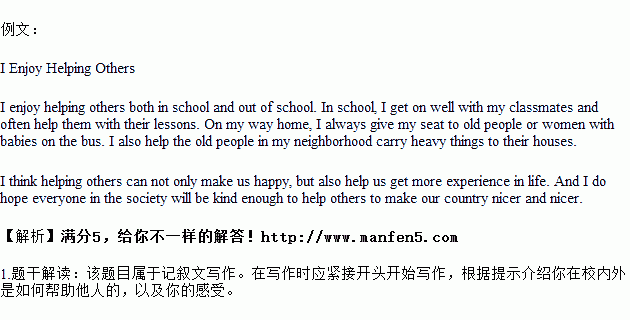题目内容
"小爱无痕,大爱无疆。"于细微处行善举,于平凡中见精神。乐于助人是一种美德,助人要从日常小事做起,不因善小而不为。
某英文网站正在开展以"I Enjoy Helping Others"为主题的征文活动。假如你是李华,请用英语写一篇短文投稿,谈谈你在校内外是如何帮助他人的,以及你的感受。
提示词语:classmates, old people, happy, experience
提示问题:
●What do you often do to help others?
●What do you think of it?
I Enjoy Helping Others
I enjoy helping others both in school and out of school. ____________________________________________________________________________________________________________________________________________________________________________________________________________________________________________________________________________________________________________________________________________________________________________________________________________________________________________________________________________________________________________________________________________________________


